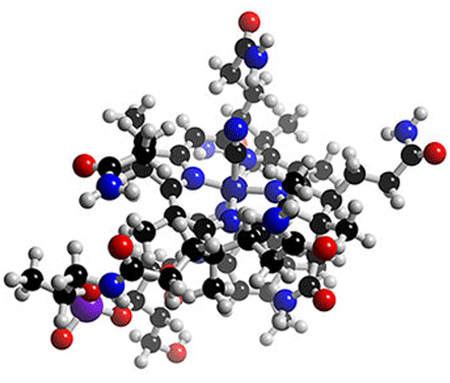Main menu
You are here
Vegan vitamin b12 sources
Vegan vitamin b12 sources

There are many vegan foods fortified with B12. They include non-dairy milks, meat substitutes, breakfast cereals, and one type of nutritional yeast.
The "Daily Value" for B12 found on food labels is based on 6 µg, which was the RDA in 1968. If a label says a food has, for example, 25% of the Daily Value of B12, it has 1.5 µg (25% of 6 µg = 1.5 µg).
Brewer's and Nutritional Yeasts
Brewer's and nutritional yeasts do not contain B12 unless they are fortified with it. At least two vegan B12-fortified yeasts are currently on the market: Red Star Vegetarian Support Formula and Twinlab Natural Nutritional Yeast (verified to be fortified with B12 via personal communication with Twinlab June 3, 2003). Unfortunately, there are some drawbacks to relying solely on B12-fortified nutritional yeast for B12:
- Nutritional yeast often comes from bins in health food stores. If not careful, it would be easy for a store employee to order the wrong nutritional yeast out of the distributor catalogs which often list many yeasts. It would also be easy to accidentally put the wrong yeast into the Vegetarian Support Formula bin.
- B12 is light sensitive. Nutritional yeast is likely to be exposed to the light because it is often stored in clear bins or plastic bags.
- At least one vegan who thought he was getting B12 from nutritional yeast developed B12 deficiency symptoms that cleared up upon taking a B12 supplement.
If you are trying to use Red Star Vegetarian Support Formula for B12, make sure you are actually getting what you think. It is also best to keep it in the refrigerator or freezer, out of the light.
Please note: Red Star Vegetarian Support Formula nutritional yeast has many other nutrients and I eat it myself; but vegans shouldn't rely on it for their sole source of B12, in my opinion.
Cooking Foods
Cooking may destroy the B12 found naturally in animal foods. Cyanocobalamin, the form in fortified foods, may be more stable during cooking. For example, in an acid medium (pH 4-7), cyanocobalamin can withstand boiling at 120° C.1
Multivitamins
There are some concerns about vegans relying solely on multivitamins that contain only small amounts of B12 (less than about 10 µg):
- Herbert et al.2 (1982, USA) reported that vitamins B1, B3, C, and E, and copper and iron can damage B12. They tested 15 multivitamin preparations used daily by approximately 100 million Americans for inactive B12 analogues and all preparations contained some (6-27% of total corrinoids).
- Vitamin C in doses of 500 mg or more taken with meals or within one hour after a meal, may diminish B12 availability or destroy the B12.3
- Many multivitamins cannot be chewed, which is important for B12 absorption in some people.
That said, if a multivitamin is chewable and has 10 µg of B12 (as cyanocobalamin) or more, and taken daily, it is most likely adequate.
Supplements
Safety
In 1988, Herbert cautioned that large amounts of B12 may eventually be found to be harmful.4 In contrast, Hathcock & Troendle5 (1991) point out that there appears to be little or no question that B12 intakes of 500-1000 µg/day are safe. The Institute of Medicine has not set an Upper Tolerable Limit for a daily vitamin B12 intake.
cobalt and the cyanide contribution of 1000 µg/day of cyanocobalamin are considered toxicologically insignificant.5 People with chronic kidney failure, cyanide metabolism defects, and probably smokers should take a different form of B12.
Chew or Dissolve Supplements Under the Tongue
Crane et al.6 (1994, USA) noted that tablets of one vitamin company dissolved slowly in water and acid. They then conducted a study to see if vegan patients who had not responded to oral B12 (described below) tablets swallowed whole could improve their B12 response by chewing the tablets. 7 people chewed the tablets of 100 µg (once a week for 6 weeks) and their average serum B12 levels went from 116 to 291. Of the 9 who didn't chew, theirs increased from 123 to only 139. (However, a 100 µg dose once a week is not a lot of B12. The more surprising result of this experiment was the large increase in the serum B12 of the 7 people who chewed the tablets, not the small increase of those who did not chew.)
7 of these 9 then chewed 500 µg/day for 10 days and their levels rose to normal with a final average of 524 ± 235. Three participants could not raise their levels orally and required B12 injections to maintain serum B12 above 300.
Oral B12 for People with Malabsorption
Some recent studies have shown that taking large amounts of sublingual B12 can normalize B12 status even in people with pernicious anemia. For more information.
Light
B12 supplements should not be left in the light as prolonged light damages cyanocobalamin.7,8
Origin of B12 in Supplements and Fortified Foods
Streptomyces griseus, a bacterium once thought to be a yeast, was the commercial source of vitamin B12 for many years.8,9 The bacteria Propionibacterium shermanii and Pseudomonas denitrificans have now replaced S. griseus.10 At least one company, Rhone Poulenc Biochimie of France, is using a genetically engineered microorganism to produce B12.11
Non-cyanocobalamin Supplements
In addition to cyanocobalamin, there are oral supplements available for methylcobalamin, adenosylcobalamin (known in the supplement industry as dibencozide and coenzyme B12), and to a lesser extent, hydroxocobalamin. As mentioned above, these forms of B12 may be preferable for vegan smokers.
S-adenosylmethionine (aka SAM and SAMe) is another supplement that has received attention. It is found in the homocysteine-methionine pathway, and some people think it may be relevant to B12 status in people who have been B12 deficient.

